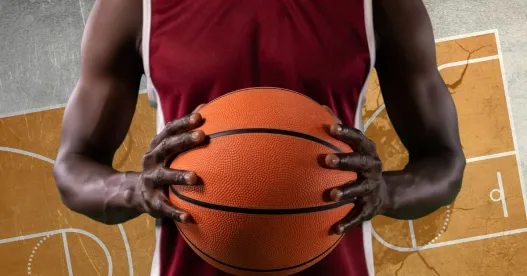Unable to find a student-athlete willing to file an unfair labor practice charge to support the effort of the General Counsel of the National Labor Relations Board (NLRB) to reclassify student-athletes as “employees” as defined in the National Labor Relations Act (NLRA), Michael Hsu, co-founder of the recently formed college basketball player advocacy group, the College Basketball Players Association (CBPA), has filed an unfair labor practice charge (Case No. 25-CA-286101) with Region 25 of the NLRB in Indianapolis accusing the National Collegiate Athletic Association (NCAA) of violating Sec. 8(a)(1) of the NLRA “by classifying college athletes as student-athletes.”
"According to Hsu, current players were not willing to file a charge because they feared retaliation and were concerned about causing harm to their school or sport."
Interestingly, the NLRA does not require standing to file a charge and the NLRB’s regulations provide that “any person may file a charge alleging that someone has engaged in . . . an unfair labor practice” (emphasis added). This process is authorized because the filing of a charge simply gives the NLRB General Counsel notice that a possible violation of the NLRA may have occurred and should be investigated. Such notice is essential because the General Counsel is legally precluded from searching for alleged NLRA violations on its own initiative. In fact, even if the General Counsel were to witness a clear violation of the Act, absent a pending charge, the office would lack the authority to act.
"Hsu’s filing tracks the goals announced in NLRB General Counsel Jennifer Abruzzo’s memorandum (GC 21-08)."
With Hsu’s filing, Abruzzo can now attempt to use her “prosecutorial authority” to have an administrative law judge decide that certain student-athletes must be reclassified as college or university employees pursuant to the NLRA. In her memorandum, Abruzzo asserted that the mere reference by schools to student-athletes as anything other than employees is a misclassification of their status and a violation of the Sec. 8(a)(1). The General Counsel will allege the misclassification has a chilling effect that misleads student-athletes to believe they are not entitled to the NLRA’s protection.
Although Hsu and his organization filed the charge on behalf of college basketball players, it is likely that he will assert many of the same arguments that were made in 2015 when the Northwestern University scholarship football players’ attempted to unionize, and later expressed by NLRB General Counsel Richard Griffin in his 2017 memorandum (GC 17-01), which formed the basis for General Counsel Abruzzo’s memorandum. Griffin’s memorandum concluded that scholarship football players meet the broad interpretation of the NLRA’s definition of “employee” and the common-law employee test because they (1) perform services for their institutions and the NCAA in playing football and generating millions of dollars in net profits and fostering an immeasurably positive reputational image which boosts admission applications and alumni donations; (2) are subject to the control of their institution and the NCAA based on the NCAA’s strict rules and compliance requirements and additional controls imposed by the individual institutions; and (3) receive compensation in the form of valuable scholarships covering tuition, fees, rooms, board, books, and additional stipends directly tied to a player’s status and performance on the football field.
NLRB Region 25 in Indianapolis will begin the investigative process and seek information, through affidavits, from the Charging Party (the CPBA). It will request evidence from the NCAA by asking to speak with and take affidavits from specifically identified individuals. In addition, the NLRB will seek significant documentation on the classification issue. The NCAA will likely decline to provide affidavits, as is its legal right; possibly object to some document requests; and submit a position statement with accompanying documentation regarding the proper classification of student-athletes.
"It is likely that the NCAA will seek to dismiss the charge by presenting detailed facts as to why it is neither the employer of any student-athletes nor a joint employer of any student-athlete with any college or university."
Since this charge has the support of the NLRB General Counsel and it seeks to change NLRB law, it will likely be referred by Region 25 to the NLRB’s Division of Advice in Washington D.C. It should be expected that the Division of Advice will instruct the Regional Director to issue a formal complaint against the NCAA and schedule a formal hearing on the complaint. Following the issuance of the complaint, the Region will likely issue a press release. An NLRB trial before an administrative law judge could begin (probably in Indianapolis) in about six months, depending on the current NLRB trial schedule.





 />i
/>i
